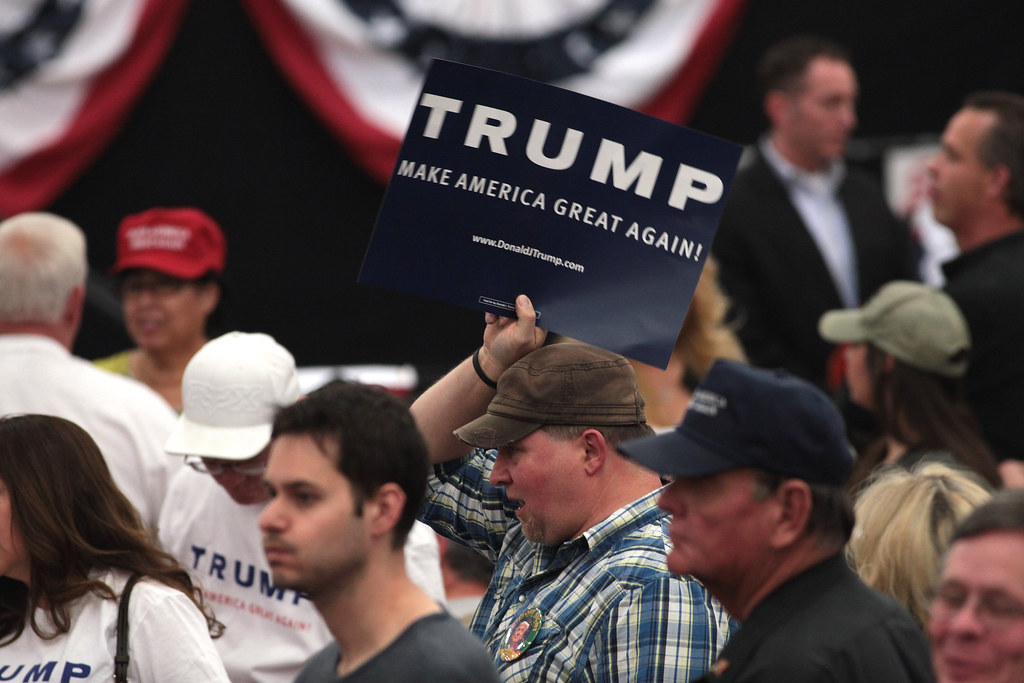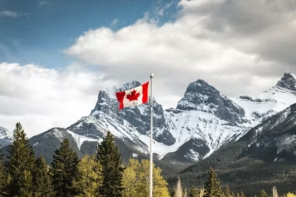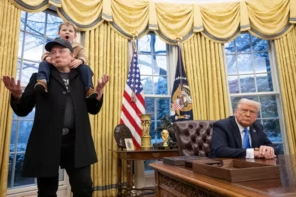Standing in the small beach-front shop in North Carolina I have visited since I was born, I was shocked by the shelves overflowing with Trump paraphernalia. Selling everything from “Make America Great Again” flags to shot glasses, this tiny store had been turned into a President Trump shrine. Although I had seen Trump merchandise being sported before, visiting this shop made me realize just how flashy the Trump following had become. Never before had I seen supporters so infatuated with their leader that they were willing to pledge their support by spending their hard-earned money on gimmicks.
The idolization of political figures isn’t new. Throughout the history of American politics, leaders like Washington, Lincoln, and Roosevelt have been admired as icons, even when they were less-than-perfect. The glorification of presidents feeds into the myth of American exceptionalism, which exalts the “brave” men who have defended American democracy, setting an example for the rest of the world to follow. While past presidents have donned what are known as “cults of personality,” in which followers conflate a president’s charisma with his ability to lead a country, President Trump’s following has demonstrated what can happen when blind faith goes too far. As the world watched a delusional faction of extreme right-wing Trump supporters storm the Capitol Building on January 6th, it became clear that these rioters staged this insurrection to demonstrate their allegiance to President Trump.
President Trump’s following has demonstrated what can happen when blind faith goes too far.
Leading up to the 2016 election and through his four years in office, Trump successfully preyed on Americans who felt disenfranchised by the political system. By using rhetoric such as, “drain the swamp” and “make America great again,” Trump signified to his followers—with the aid of news outlets and social media—that they were part of something bigger. This revolution gave them something to believe in.
The unwavering commitment to Trump as an individual leader, rather than a member of the Republican party, can be considered a cult following. Cults are defined as any religion or sect considered to be extremist or false, that rest under the guidance of an authoritarian, often charismatic leader, who is venerated by his followers. The capital riots proved to be case and point that Trump’s following can be classified as a cult. Under the guise of fake information spread by the President and his allies, his supporters stormed the Capitol in an attempt to overturn a free and fair election, which in Trump’s twisted belief, was stolen from him.
It is important to look at the context of what led up to the riot—how his followers were lied to and coerced into believing that democracy was in peril. Since his defeat in the November election, Trump waged a baseless campaign to try and overturn the results through failed legal battles. Knowing that he couldn’t make any progress through the courts, he encouraged and incited his supporters to come to Washington and wage a “second American Revolution” on the day Congress was meeting in a joint session to count electoral votes and certify the winner of the 2020 Presidential race. An alarming aspect of the insurrection was how well-organized and coordinated it was. Just days after the election was called, Stop the Steal groups started to pop up on Facebook, accumulating evidence of ‘voter fraud’ and election malpractice that would give Trump a second term. Group members planned out the insurrection, even discussing carpool options so that they could legally bring firearms and weapons to capitol grounds without being stopped on a flight. Anyone who objected to or even questioned information was immediately exiled from the group, setting the precedent that dissent won’t be accepted. In the time it took Facebook to delete the group (roughly 48 hours), 320,000 people had joined and thousands of off-set groups were created. Trump successfully curated a sense that he—and by association, his followers—had been wronged and frauded. Individuals were manipulated into believing they were patriots and the protectors of democracy, and created an army to protect Trump.
At his rally on the morning of January 6th, Trump stated to his followers, “Walk down Pennsylvania Avenue… Take back our country.” However, his supporters were not just outside the Capitol: 14 senators objected to election results in key swing states, instigating long debates about the integrity of the election. After inciting the insurrection through countless lies, calling the election “fraudulent,” Trump was silent until later tweeting a video telling the mob to go home while simultaneously praising them despite his oath to protect America.
Anyone who objected to or even questioned information was immediately exiled from the group, setting the precedent that dissent won’t be accepted.
Much like the undying commitment cult followers exhibit to their leader, Trump’s supporters demonstrated they were willing to risk their lives for him, take hostages, and risk the legal repercussions. Despite the presence of long-time Trump allies who were in the process of contesting the election results as the Capitol was attacked, members of the insurrection still put them in danger, showing their loyalty is only to their leader, Trump. Furthermore, moments after Trump tweeted about Vice President Mike Pence, who has been a faithful ally to Trump, the mob turned their threats toward him. One rioter shouted “Hang Mike Pence!” and threatened his life while Pence was hiding with his family in an office close to the Senate Chamber.
The events of January 6th illustrate the dangerous and devoted cult following of Donald Trump, which he has curated over the last four years, culminating in a violent attack on Congress in which individuals risked their lives to give their leader another four years in office. Trump’s actions as an absolute leader and tactics such as the rhetoric of fear and manipulation of information show the precariousness of placing one’s undying devotion and trust on one political figure.








